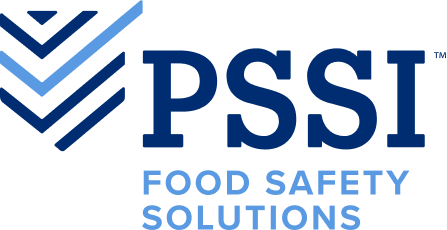Compliance has always been a critical part of this industry, but we must be careful not to let complacency take root. It’s not enough to rely on successful practices that worked in the past; our policies must continually adapt and evolve to ensure that we are addressing compliance needs now and in the future. PSSI and others have learned this lesson the hard way.
It’s been nearly two years since the U.S. Department of Labor (DOL) found employees under 18 working at certain PSSI facilities and over a year since the investigation was settled with a consent judgment. While all individuals hired by PSSI attested to being18 or older when they applied for employment, provided documentation during onboarding demonstrating that they were adults —and all were found to be authorized for employment via the government-recommended program E-Verify, the DOL determined that the individuals were underage by relying on documents it subpoenaed from schools.
Prior to the DOL investigation, PSSI stood behind what was believed to be best-in-class compliance policy modeled after the government’s IMAGE best practices, including use of E-Verify, the Social Security Number Verification System and the execution of federally recommended spot checks. However, the federal investigation revealed a harsh reality that those practices were not enough to catch identity theft. We looked inward and saw the opportunity to not only build an even more robust compliance program, but also the opportunity to become a leader in safety, integrity and compliance across the industry by working to understand procedural challenges and anticipate future needs.
For instance, the E-Verify system is not 100% accurate and cannot always detect instances of identity theft or even typographical errors. Complicating matters is government guidance mandating employers to accept documents that appear to be genuine relating to the employee or risk violating anti-discrimination laws. At the same time, new and emerging technologies generate more sophisticated false or forged identity documents, creating greater difficulties for employers to detect. The market for false documentation continues to grow and has turned into a lucrative enterprise for criminals that can sell identification, social security and permanent resident cards.
Through the use of enhanced technology, PSSI has streamlined the I-9 processes for improved compliance and efficiency and has upgraded the Applicant Tracking System (ATS) to boost recruitment and onboarding. For 100% of our new hires, the company implemented a post-offer of employment anti-identity theft screening.
We have worked diligently to implement new policies and procedures that strengthen our zero-tolerance policy to safeguard against the employment of anyone under the age of 18. Examples of these policies include creating a dedicated compliance committee and solidifying my own role as Chief Compliance Officer. These changes start in the C-Suite and flow through our company’s governance structure to the floors of the facilities we service.
We know company culture is as critical to our compliance success as policies and technologies. Our team members have stepped up admirably and committed to a “No Minors Pledge” for a safe and responsible workplace. To keep open the lines of communication between employees and management, CEO Tim Mulhere regularly holds townhall meetings to provide compliance updates and to hear feedback and concerns.
PSSI was, of course, not the only company to face similar issues amidst a previously underrecognized child labor crisis in America across industries — with broader root causes, including a complex national immigration policy. But regardless of the reason it occurred, it is our responsibility to help fix the problem.
The compliance work we are doing has not gone unnoticed. We have seen other consent judgment decrees from the DO requiring companies across a range of industries — including food and poultry processing, wood production, manufacturing, technology, and roofing — implement compliance policies and procedures similar to those PSSI put in place on its own.
This is validation of the hard work that the company has done over the past two years, but we will not rest on our laurels and we will continue to be relentless.
It’s important to go beyond our facilities’ walls to engage with the communities we call home and the residents we call neighbors. Our team members are active within their communities, donating their time to support charitable causes and groups. We are also working to engage and partner with local and national community organizations to prevent the exploitation of children crossing the border and to help those who get caught up in the net of bad actors.
PSSI has come far and learned much in the last two years. We are a better, stronger and different company than we were before, and that’s a good thing for our customers and our team. We will continue our compliance journey, but to meet existing and emerging challenges effectively, we cannot go it alone. Moving forward, we are committed to sharing all we have learned over the last few years — to make our compliance journey a most effectual one and our industry even stronger.
*This blog was originally published by meatingplace: https://www.meatingplace.com/Industry/Blogs/Details/115745

